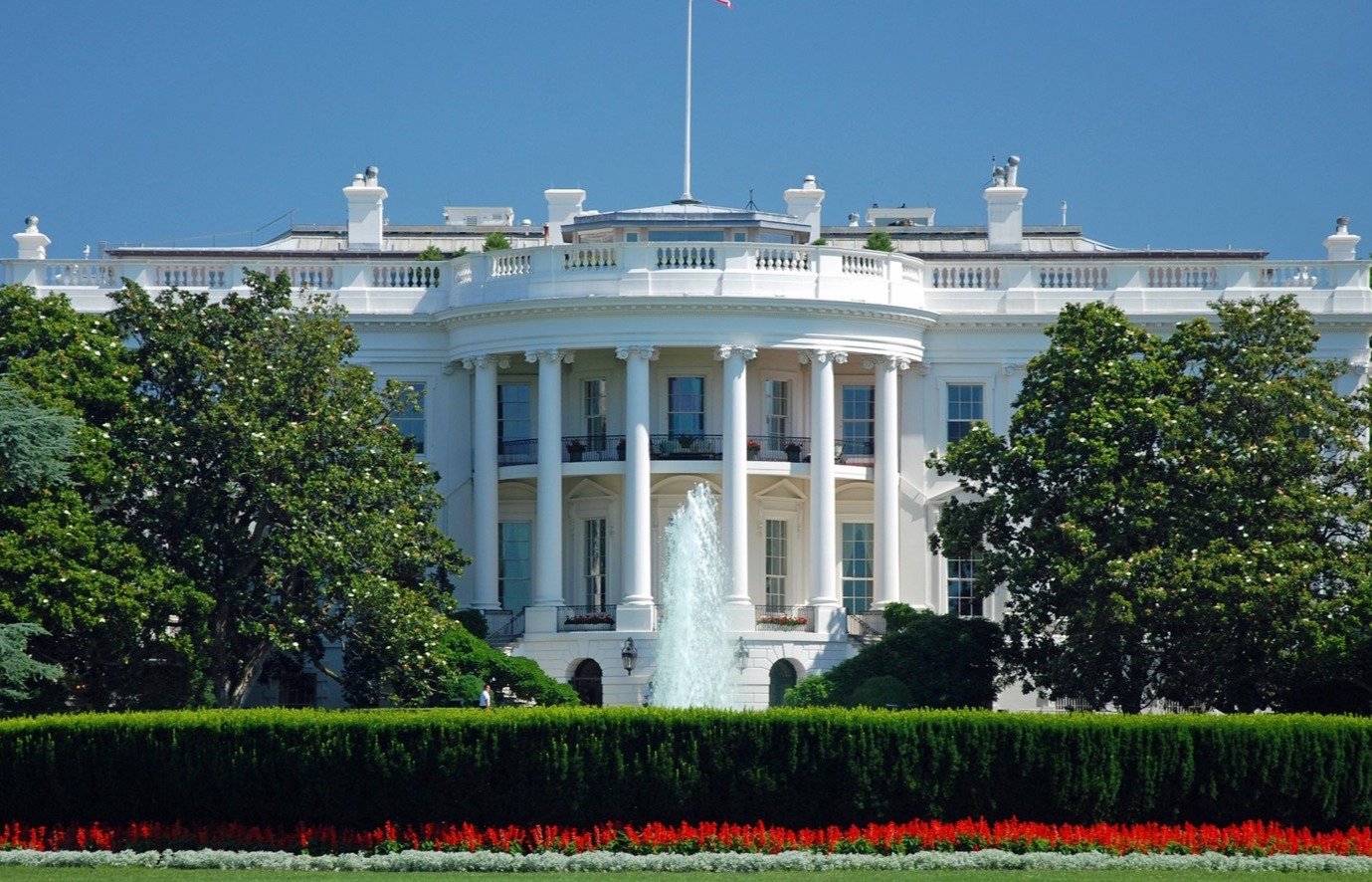Jackson Walker Labor & Employment attorney Jackie Staple returns to discuss what actions President Biden and his administration have taken during his first 100 days in office. Aside from prioritizing the COVID-19 vaccine distribution, President Biden announced two potential laws—the American Jobs Plan and the American Families Plan—during his address to the joint session of Congress on April 28, 2021, that could ultimately impact employers if passed. With more than 40 executive orders signed during his first 100 days, Jackie anticipates additional executive orders in the future focused on diversity, equity, inclusion, and unionization.
 |
Related: President Biden Says “No” to Discrimination Through Executive Actions » |
Greg Lambert: Hi, everyone. I’m Greg Lambert, and this is Jackson Walker Fast Takes. Back in January on a JW Fast Take, I spoke with Jackson Walker Labor & Employment lawyer Jackie Staple about the new presidential administration and what we might see in the first 100 days of the Biden administration. I asked Jackie to come back on the show to discuss some of the highlights that we’ve seen over the last 100 days.
So, Jackie, thanks for taking the time to come back on and talk with me.
Jackie Staple: Of course, Greg. It’s great to be back, and it’s great that we get to take a look back and reassess what we might expect in the upcoming month.
Greg Lambert: What are you hearing about the Biden administration and its top priorities for the labor and employment issues within the first 100 days of his administration?
Jackie Staple: Well, Greg, really the first priority for the Biden administration – which was no surprise to anyone – was dealing with the COVID-19 response, and the administration certainly helped with that. The administration wanted to distribute vaccines as quickly as possible, and they actually distributed twice as many as were initially pledged. Of course, states and different localities helped out with that. This affects employers, because now there’s what do we do with our workforce? People are getting vaccinated more and more. Do we bring people back, do we do a hybrid mix of office and remote work, or do we let people keep working remotely? It’s a decision employers are being faced with as we speak.
In terms of workplace safety and bringing folks back, Biden had instructed OSHA to issue COVID guidelines by early February. Then Biden also said, well, maybe issue some temporary standards, which are legal for a nationwide emergency situation. I haven’t seen standards or any anticipated standards, but we do you have some guidance that was posted up in January, and it’s great and gives us step-by-step on all the best practices that employers can look at.
Then we still have a lot of labor and employment law issues that are impacting employers that are going to start seeing some momentum. We anticipate we’ll be talking about those more over the next few months. They are still very much part of Biden’s administration’s approach.
Greg Lambert: Yeah. I saw that Biden addressed the joint session of Congress on April 28 and talked about some of his plans. So, do any of those which he presented to Congress implicate labor and employment law issues?
Jackie Staple: They sure do, Greg, and you’re absolutely right. On April 28th, Biden addressed Congress, and he spoke about two potential laws.
One of those he actually published through a White House briefing back in March, and that’s the American Jobs Plan. This one is mostly about infrastructure—so it talks about roads and transportation—but there are some things in there, some nuggets, that will in fact affect employers, and particularly certain industries may be impacted. So, this American Jobs Plan addresses creating jobs in manufacturing and research and development, and looking at our infrastructure with the caregiving economy. So, if you’re in those sectors, this law could implicate your business. And again, Biden expressed his commitment to ensuring unionization in this potential law. He is firm on that, and he is working that into all of his potential proposals and some of his executive orders. This also talks about investing workforce development and training, particularly for workers who have lost their jobs through no fault of their own, and focuses again on certain sectors like clean energy and manufacturing. What’s key for employers, though, in this is—we’re all familiar with the Fair Labor Standards Act, and there are certain sub-minimum wage provisions in that that allow employers to hire on certain certificate employees who have disabilities or maybe student learners, or do industrial homework for below minimum wage—if you utilize those certificates, Biden’s asking Congress to eliminate this provision of the FLSA.
He’s also talking about strengthening funding for his administrative agencies. These include the EEOC, the NLRB, the Department of Labor, and OSHA—all the employers deal with on a regular basis.
He mentioned two separate acts on April 28th, and the second one was the American Families Plan. This will primarily cause a big potential change in the Family and Medical Leave Act. As employers know, there’s no federal family and medical leave, and we’ve been dealing now for probably the past five-to-10 years with a growing patchwork of leave laws on the state level or at a local level. This would create a national comprehensive paid family and medical leave program, and so it would include paid parental leave, some of the reasons we’re familiar with already, like a serious health condition of the employee or the employee’s family member, but would also expand FMLA to include paid time off for finding safety from sexual assault, from stalking, domestic violence, and then also a bereavement leave provision. As employers may know, especially national employers, some states already provide these types of leaves, but most do not. So, this would make that a federal law. The bereavement leave would be three days is what’s being proposed, and then the paid family leave would be three months, calculated at a certain percentage of the employee’s income. Finally, this would also provide discounted childcare for certain families, kind of a proportion of their income. While this doesn’t directly impact employers, we all know a lot of attendance issues, some productivity issues, can be caused by the stress of finding childcare and when working parents are dealing with childcare issues.
Greg Lambert: Now, we’ve heard a lot recently about raising the federal minimum wage to $15 an hour. Has there been any progress during the first 100 days of the Biden administration on this front?
Jackie Staple: There’s been action, Greg, but I don’t think there’s been much progress. It’s still a priority of Biden’s. In fact, just in the past few weeks, he has put into place two executive orders that show that commitment. So, for any employer that’s a federal contractor, your new federal minimum wage starting 2022 is going to be that $15 an hour, and also all federal government employees are going to be at that federal $15 minimum wage. But in terms of applying that to private employers and nationwide there have been some roadblocks. House Democrats did introduce in January a bill to raise it to $15, and that quickly fell apart in the Senate. So, it looks like not anytime soon, but still very much on Biden’s radar.
Greg Lambert: Well, one of the things that presidents have to do when they don’t have a Congress that aligns with them—in this case, the Senate—is they sign a few executive orders. I think Biden has signed, you know, just a few over the first 100 days. So, out of those, what should employers be paying attention to?
Jackie Staple: Well, you’re right, Greg, just a few is an understatement. For Biden, you really took off fast and heavy with the executive orders, he’s already signed over 40. Now, usually that will go down in number over time, then they’ll become less frequent. A big focus has been diversity, equity, and inclusion.
Back in February, JW presented an article summarizing some of those, and there will be an article coming out right around the time of this podcast summarizing some of the newer executive orders. But some of them to note, there’s been a White House Office of Faith-Based and Neighborhood Partnerships executive order, so dealing with religious diversity and working with those institutions on different initiatives. There’s also been a White House Gender Policy Council established by one of Biden’s executive orders, and this is going to look specifically at issues that women and children face and work to remedy some of the discrimination faced by women historically and in today’s environment. Examples are funding STEM programs for women, so increasing diversity in traditionally male fields like STEM.
Also, again, unionization is big on Biden’s radar. One of his executive orders did touch on worker organization and empowerment.
I think we can expect him to continue executive orders focusing on diversity, equity, inclusion, and unionization.
Greg Lambert: In the time we have left, is there anything else that we should be on the lookout for?
Jackie Staple: Besides what we’ve talked about, Greg, I think it’s notable that Biden’s appointments to his cabinet and other cabinet-level positions are somewhat more diverse in terms of race and gender than prior administrations. So, that’s nice to see that the administration is looking more like the American population. I think a lot of these appointments have been employee-friendly appointments, which we fully expected with a Democratic president. So, I think you’ll continue to see that reflected in different federal agency initiatives and actions.
Greg Lambert: Jackie Staple, thank you very much for coming back on the show and talking about Biden’s first 100 days.
Jackie Staple: Thanks, Greg. It’s been great.
For additional JW Fast Takes podcasts and webinars, visit JW.com/Fast. Follow Jackson Walker LLP on LinkedIn, Twitter, Facebook, and Instagram.
The music is by Eve Searls.
This podcast is made available by Jackson Walker for informational purposes only, does not constitute legal advice, and is not a substitute for legal advice from qualified counsel. Your use of this podcast does not create an attorney-client relationship between you and Jackson Walker. The facts and results of each case will vary, and no particular result can be guaranteed.
